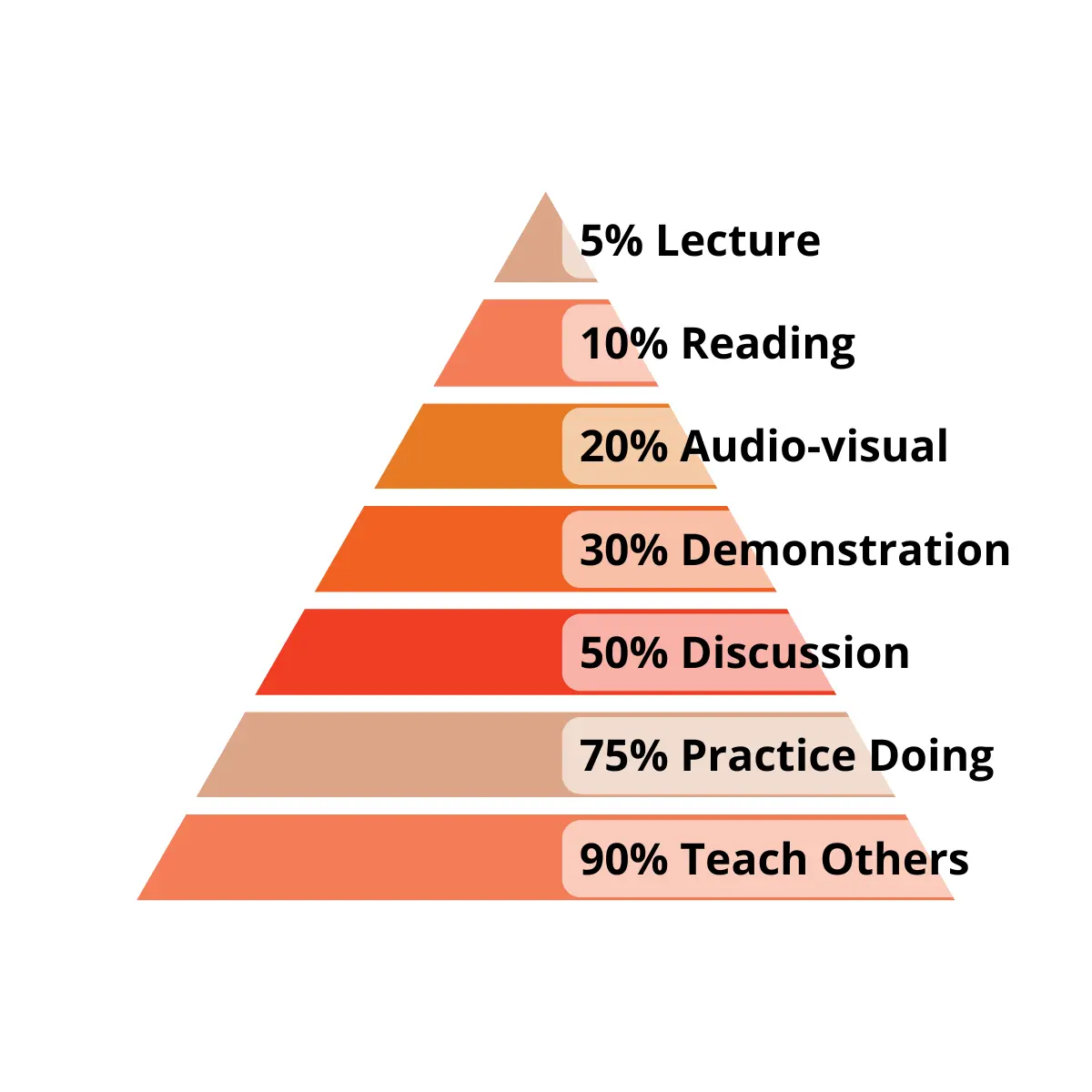Lesson 1: Learn Languages Faster with the Learning Pyramid
Maximize your retention and start speaking confidently today

Why Most Language Learning Methods Fail
Many language learners struggle because traditional methods—live classes or apps—don’t focus on active learning. You might finish a lesson and still feel unable to speak or recall vocabulary.
The key problem? Passive consumption. Reading, listening, or sitting through a lecture alone doesn’t help your brain retain information effectively.
The Learning Pyramid Explained
The Learning Pyramid is a proven model showing the retention rates of different learning methods:
| Method | Retention Rate |
|---|---|
| Lecture | 5% |
| Reading | 10% |
| Audio/Visual | 20% |
| Demonstration | 30% |
| Discussion Group | 50% |
| Practice by Doing | 75% |
| Teaching Others | 90% |
Takeaway for language learners: To truly remember words, phrases, and grammar, you must actively engage and teach what you learn.
Active Learning vs Passive Learning
- Passive methods (lectures, reading, apps alone) have low retention.
- Active methods (practice, discussion, teaching others) dramatically improve retention.
- Combining active learning with emotional connections strengthens memory even further.
Example: Making a funny mistake in a new language creates a strong memory anchor.
Exercise 1: Teach to Learn
Start using the Learning Pyramid today:
- Select a short text, audio clip, or video in your target language.
- Highlight 3–5 new words or phrases.
- Teach them aloud: record a WhatsApp voice message or explain to a friend.
- Replay your recording, notice mistakes, and correct them.
- Link each word to an emotion or story for better retention.
Teaching others activates your memory and helps you speak more naturally.
Why This Works for Real Language Learning
- Forces your brain to organize and retrieve information.
- Combines active practice with emotional engagement, making learning enjoyable.
- Prepares you to use language in real-life situations, not just exams.
Reflection: Your Current Learning Habits
Ask yourself:
- How much of my last lesson do I truly remember?
- Could I explain it to someone else clearly?
The difference between passive and active learning becomes clear when you teach what you’ve learned.
Action Step for Today
- Choose one short text or audio clip in your target language.
- Identify 3 new words.
- Record yourself teaching them via WhatsApp voice message.
- Replay your message, correct mistakes, and celebrate your progress!
By following this method, you’ll start building real speaking skills from Day 1.
Back to the outline Next Lesson